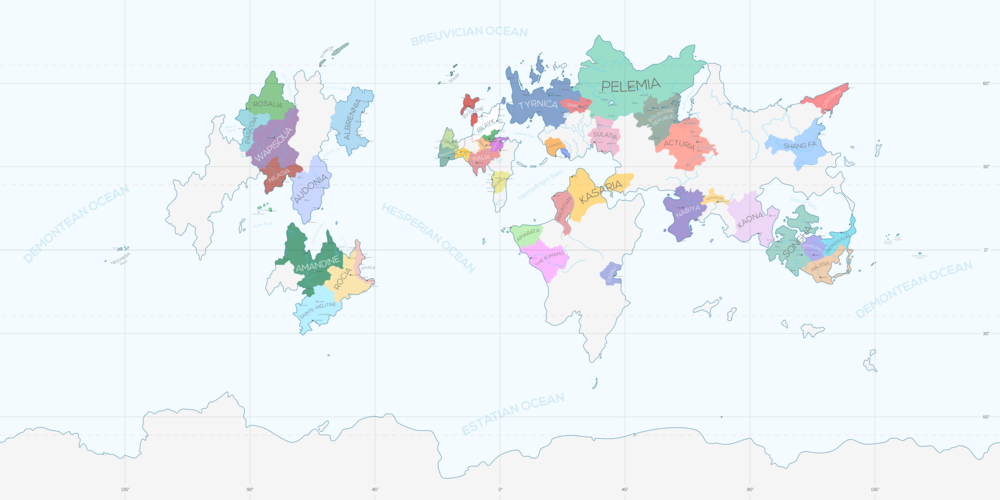Portal:Levilion: Difference between revisions
(Updated Exemplary Article colour) |
No edit summary |
||
| Line 16: | Line 16: | ||
<div style="border:1px solid #ccc;margin:.5rem;width:48%"> | <div style="border:1px solid #ccc;margin:.5rem;width:48%"> | ||
<div> | <div> | ||
<div style="background:# | <div style="background:#9befc0;color:#fff;text-align:center">'''Exemplary Article'''</div> | ||
<div style="padding:1rem">{{Portal:Levilion/Article}}</div> | <div style="padding:1rem">{{Portal:Levilion/Article}}</div> | ||
</div> | </div> | ||
Revision as of 13:28, 26 May 2020
Prior to colonisation, Surrow was inhabited by indigenous peoples, beginning from around 3000 BP: at the time of colonisation, the Surrowese archipelago was inhabited by Chequan and Itchalnu. However, after Avery Holcot discovered the archipelago in 1486, and noted that its waters were abundant with fish, Auressian nations sought to rule over the archipelago, with the two most prominent ones being Rythene and Tyrnica. Competition between the two countries over the Surrowese archipelago and its abundant fishing grounds would last until the end of the Eleven Years War in 1759 between Rythene and Tyrnica, which concluded with Rythene assuming sole control over the archipelago.
During the Great Upheaval, Surrow was neglected by the Rytheneans, which led to the beginning of Surrowese self-government. Although after the Great Upheaval, Rythenean control was restored, the Surrowese would desire a greater say in their affairs, and would chafe under continued Rythenean rule. Despite this, Surrow would maintain its position as part of the Rythenean Empire until it gained independence in 1950.
In 1951, palladium was discovered on Great Island, leading to increased interest in the Surrowese archipelago by General Armaments. This led to substantial economic investment, with the Tulaktarvik mine becoming the primary economic engine of Surrow, especially after the cod fisheries in Surrow began to decline. Today, Surrow is a part of the invisible empire, with Surrow maintaining good relations with the invisible empire and the Commonwealth of Northern Auressia, and is a full member of the Assembly of Marceaunian States.
(See more...)

